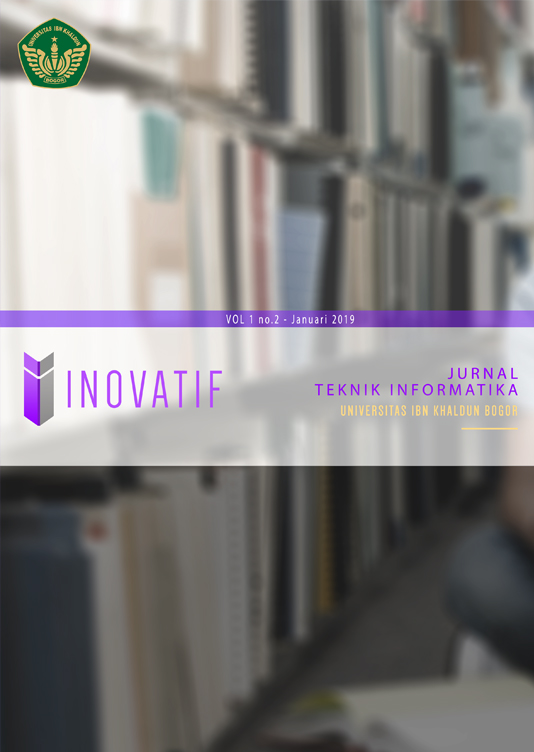Mobile Development of Android-Based Beginner E-Voting System
DOI:
https://doi.org/10.32832/inova-tif.v5i2.8561Abstract
One of the implementations of Pancasila democracy in Indonesia is the implementation of the election of leaders, by voting. In addition to within the scope of government, the implementation can also be carried out within the scope of educational institutions such as schools or campuses, where voters are referred to as novice voters. Elections are still carried out conventionally which requires a large nominal budget, as well as problems or fraud that often occur during elections. So in this study, a digital voting system was created using an electronic device, namely an Android-based mobile e-voting system that can be accessed via a smartphone. the existence of this system is considered to be able to provide convenience and comfort in the implementation of the voting process and provide an important role to the generation of novice voters who are now entering the digital era where technology is developing rapidly, namely to continue to cultivate democratic values in it. Based on the data obtained, smartphone users now have a percentage value of 66.31% among the public and 33.69% of people do not own a smartphone. While the survey results related to the operating system market pairs in Indonesia, accounting for 91.56% of Android users, show that the majority of smartphone users in Indonesia use Android, with this the e-voting system has the potential to be used by the general public, especially novice voters. For this reason, this e-voting system aims to provide convenience and comfort in the implementation of the election process.
References
W. W. Muhammad Zundy Alwan, "Penerapan Demokrasi Pancasila Dalam Proses Pemilihan Ketua Umum Himnas Ppkn Pada Kongres Dan Rakernas Di Universitas Negeri Yogyakarta Tahun 2018," Kaji. Moral dan Kewarganegaraan, vol. 9, p. 218–232, 2021.
DPR, "Undang-undang Dasar Negara Republik Indonesia Tahun 1945," DPR, 2016. [Online]. Available: https://www.dpr.go.id/jdih/uu1945. [Accessed 2022].
P. S. N. Wardhani, "Partisipasi Politik Pemilih Pemula dalam Pemilihan Umum," Jurnal Pendidikan Ilmu-Ilmu Sosial , vol. 10, pp. 57-62, 2018.
F. S. Suganda, "Rancang Bangun Aplikasi E-Voting Presiden Mahasiswa Universitas Nusa Putra Berbasis Android Menggunakan Metode Geofence," 2019.
F. W. I'ib Sutera Aru Persada, "Dampak Pandemi Covid-19 Modernisasi Dan Digitalisasi Komisi Pemilihan Umum Republik Indonesia (Kpu-Ri)," J. Ilm. Galuh Justisi, vol. 8, p. 18, 2020.
J. E. P. I. B. M. P. Paulina H. Prima Rosa, "Menjajaki Kemungkinan Penerapan Sistem E-Voting Untuk Pemilu Di Indonesia: Belajar Dari Kabupaten Jembrana, Bali*)," 2014.
Kominfo, "66,3% masyarakat Indonesia Memiliki Smartphone #8," indonesiabaik.d, [Online]. Available: https://indonesiabaik.id/infografis/663-masyarakat-indonesia-memiliki-smartphone-8. [Accessed 2022].
StatCounter, "Operating System Market Share Indonesia," gs.statcounter.com, 2022. [Online]. Available: https://gs.statcounter.com/os-market-share/all/indonesia/#monthly-202102-202202-bar.





















